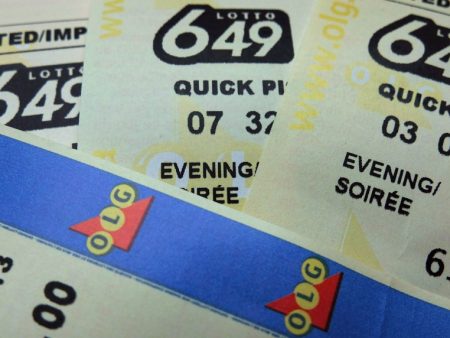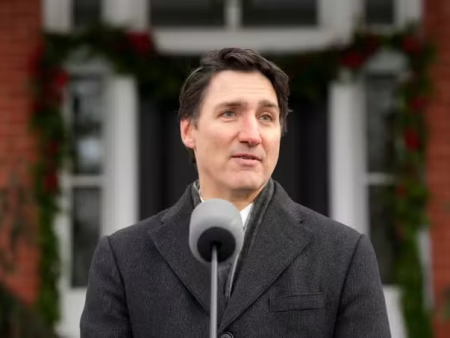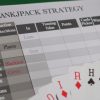The Vancouver City Council voted in May to amend its long-standing moratorium on casino expansions. This moratorium allows applications to increase slot machines and table games at the city’s two existing venues, Parq Casino Vancouver and Hastings Racecourse and Casino.
This change comes after a request from the British Columbia Lottery Corporation (BCLC), which argued that Vancouver casino expansions could address rising demand and generate significant new revenue for the city.
The original moratorium: what has changed?
The original moratorium, enacted in 2011, prohibited expansion applications for gambling facilities unless extensive public consultations were conducted and best practices for minimizing gambling-related harm were implemented.
BCLC justified revisiting the policy by citing Vancouver’s significant population growth, sitting at an estimated 22% increase since 2011. The corporation emphasized that amending the moratorium is an essential first step toward modernizing Vancouver’s gaming offerings while keeping gambling revenue within the city.
This new amendment allows BCLC to submit proposals for expansion at existing facilities but continues prohibiting the construction of new casinos within city limits. Before being approved, proposals must include detailed assessments of their health, social, and economic impacts.
Details of the amendment
The amendment applies only to existing facilities, allowing Parq and Hastings to propose expansions. Parq currently operates 600 slot machines and 61 table games, while Hastings has 446 slot machines but no table games. BCLC’s proposal for either venue does not include the number of additional machines or tables.
Future applications must include rezoning or development permit requests accompanied by comprehensive assessments of their social, health, and economic impacts.
Vancouver Coastal Health and the Vancouver Police Department will also review these proposals to ensure they align with the city’s broader goals.
BCLC indicated it would like to see Hastings expanded to include table games, potentially boosting its revenue contributions to the city. A representative for the corporation stated, “Adding table games at Hastings could better balance the gambling offerings in the city and reduce the overflow demand at Parq.”
Financial implications
Expanding gambling facilities at Parq and Hastings could yield significant financial benefits for Vancouver. BCLC estimates that such expansions could generate an additional $2.5 million to $5 million in annual revenue for the city.
Municipalities in British Columbia receive 10% of the net gaming revenue generated within their jurisdictions, and Vancouver’s current share stands at over $7 million annually—$6 million from Parq and $1 million from Hastings.
Before the COVID-19 pandemic, the revenue generated by both casinos soared above the $10 million mark.
Revenue increase
The potential increase in revenue comes at a time when cities are seeking additional funding sources to address growing infrastructure and social needs. Proponents argue that the extra funds could help bolster municipal programs and services, making the expansion a pragmatic choice for Vancouver.
However, critics contend that financial gains may come at a high social cost. Public health experts and community advocates have raised concerns about the potential for increased gambling-related harms, including addiction, financial distress, and mental health challenges.
According to the official report, “the new approach would differ from the Responsible Gaming Check by measuring outcomes related to influencing safer play rather than the inputs to support safer play. Implementation of any revisions.”

Public Health Concerns
Dr. Mark Lysyshyn, Vancouver’s medical health officer, cautioned against lifting the moratorium, citing evidence that expanded access to gambling often leads to adverse social and health outcomes.
“Gambling disorder is a recognized mental illness,” Lysyshyn stated during the meeting. “It’s associated with stress, anxiety, depression, and even suicide. It also contributes to financial difficulties, such as debt and bankruptcy, which can ripple out to affect families and communities.”
Research indicates that approximately 3.3% of gamblers in British Columbia develop an addiction, but even recreational gambling can cause problems for vulnerable individuals.
Critics argue that any potential expansion should prioritize harm reduction and robust public engagement to address these risks.
The council, however, committed to being advised by the Vancouver Coastal Health to assess the public health effects and reiterated in the report the possible measures to be taken in order to augment the Responsible Gaming Program of BCLC.
A subsection in the report states that “given Vancouver’s unique position in the region as the commercial, cultural, and social centre, the extent of various impacts of increased gambling opportunities on the community is likely to differ from impacts in other jurisdictions and should be considered in any assessment.”
Council’s Divided Vote
The decision to amend the moratorium was met with mixed reactions within Vancouver’s city council. The vote passed 5–3, with councillors from the ruling ABC party supporting the amendment. Councillors Mike Klassen, Lisa Dominato, Rebecca Bligh, Peter Meiszner, and Lenny Zhou voted in favour, while Adriane Carr, Pete Fry, and Christine Boyle opposed the measure.
Some councillors viewed the amendment as a modest and practical change. “We’re not talking about building new casinos or expanding buildings,” Councillor Meiszner explained. “In my eyes, this is a really modest expansion within an existing footprint.”
Critics, however, argued that the decision appeared rushed and lacked adequate public consultation—even though it had been in the making for more than a decade.
Broader Implications for the Gaming Industry
The decision to amend Vancouver’s gambling moratorium reflects a broader trend in British Columbia’s gaming industry. As cities grapple with population growth and changing entertainment demands, operators like BCLC are seeking ways to modernize and expand their facilities.
Proponents argue that updating Vancouver’s gaming infrastructure could help the city retain its share of gambling revenue, much of which currently flows to neighbouring municipalities like Burnaby and Richmond.
BCLC estimates that 67% of Vancouver residents’ gambling expenditures are spent outside city limits, suggesting a significant opportunity to recapture local spending. This number is expected to grow in the face of changes in provincial gambling laws.
One example is Ontario, which has seen steady growth in gambling-generated revenue since the full regulation of its iGaming industry in early 2022. Other provinces, such as Québec and Alberta, are also following the same path.
At the same time, critics warn that such expansions must be carefully managed to avoid exacerbating social harm.
Former Crown prosecutor Sandy Garossino called for greater transparency and independent oversight, arguing that the city should demand more detailed projections and harm reduction strategies before approving any proposals.
Next steps for Vancouver casino expansions
Vancouver’s decision to amend the moratorium marks the beginning of a new chapter for the city’s gaming industry.
While the amendment opens the door for expansion proposals, each application will be scrutinized to balance economic benefits with social and public health considerations.
The city council has emphasized that public consultation will remain a key component of the review process. Vancouver Coastal Health and other stakeholders will provide input to ensure that any proposed expansions align with the city’s broader goals for community well-being.
Although a lot of aspects of the expansion are still unclear, it’s sure Vancouver and the city councillors will need to carefully navigate these challenges together, to create a gaming environment that supports economic growth while still prioritizing public health.
















